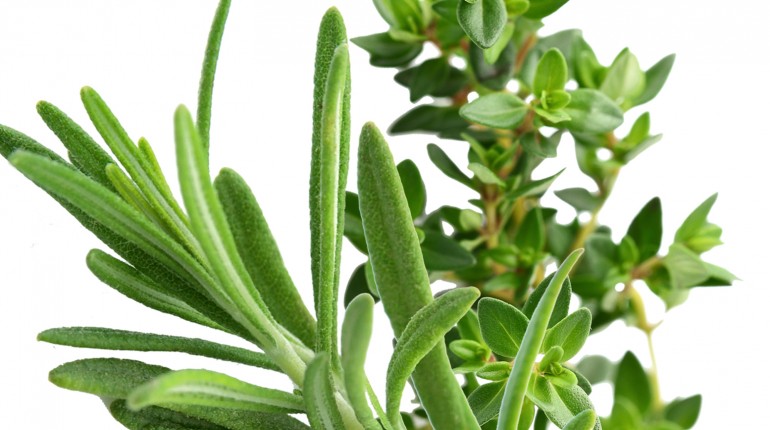Long before there were over the counter medicines and prescriptions for digestive issues, people turned to tried and true home remedies using plants from their own gardens. Many common symptoms such as motion sickness, nausea, bloating, and morning sickness when mild can easily be treated at home. If the situation however is consistent, or aggressive it’s always wise to consult with your health care practitioner.
Many people feel intimidated by gardening thinking they don’t have a “green thumb”. Don’t let that hinder you from nurturing a small patch of earth in your yard. There is a wonderful sense of peace that comes over you when you garden, whether it’s the additional vitamin D you get from the sunshine, the fresh air, or the exercise, gardening is good for your body and soul.
No garden space? No problem. You just need a well-drained pot in a sunny windowsill, patio or deck to get started. Of all the things to grow in pots, herbs seem the most forgiving. When growing herbs indoors just keep in mind the four basics:
- Organic seeds or plants-Don’t use GMO seeds or plants, or seeds or plants that have been treated with pesticides or herbicides.
- Good drainage-You need drainage holes in your pots, so your plants don’t have soggy roots.
- Organic potting mix-Use a good quality potting mix that allows for good drainage and retains moisture.
- Water-The most common reasons plants die is overwatering, causing the roots to rot. Test your plants before you water.
15 Herbs for digestive health
Always use organic seed or organic plant starts. Avoid seeds or plants that have been treated with herbicides or pesticides.
Please note this is not an all-inclusive list of herbs for digestive health.
Agrimony-This plant prefers a dryer well drained soil and will grow in sun or semi shade. Agrimony is often used in to help eliminate digestive issues, as well as diarrhea and other gastrointestinal issues.
Basil-Many think of this plant for its culinary benefits, basil is also beneficial for flatulence. Simply harvest the leaves as needed.
Chamomile-The flowers of this plant are used in teas, infusions and salves. Chamomile is used for gastrointestinal conditions such as gas, diarrhea and upset stomach.
Chives-These plants can be grown in the soil or in pots. Folk remedies use chives for gas, upset stomach, and to help stimulate digestion.
Curly parsley-This herb can grow in sun or semi shade. Since it naturally grows in a clump, it easily adapts to being grown in a pot. Parsley likes moist, well-drained soil. Due to its fiber content, this is a great herb for digestion. Using essential oil of parsley seed is beneficial to constipation and flatulence.
Dandelion (Taraxacum officinale) – Dandelion contain vitamins A, B, C, and D, as well as minerals such as iron, potassium, and zinc. In Chinese medicine, dandelion is used to treat all sorts of digestive ailments.
Dill (Anethum graveolens) – Dill is a wonderful herb enjoyed in many dishes such as fish, however the essential oils in dill are also stimulating and help to activate your digestive juices.
Fennel (Foeniculum vulgare) – Fennel is a carminative herb. Fennel is a great fiber food that can help to reduce gas, warm up the digestive tract, and speed up the digestive process. Fennel is both herb and vegetable. The stalks of the fennel is topped with feathery green fronds which is where flowers grow and produce fennel seeds. It is the fronds that are used in seasoning.
Ginger is well known for its use for nausea, motion sickness and upset stomach. Ginger is also incredibly easy to grow indoors. Learn how to grow your own ginger here.
Lemon balm– This herb grows well in pots, likes moist soil and can grow in semi shade. This herb is also beneficial for flatulence, upset stomach and insomnia.
Licorice root (Glycyrrhiza glabra) This perennial can reach 3-4 feet. It requires little soil preparation, but it will take 3-4 years before the roots are ready to harvest.
Marjoram –This is an easy to grow plant that is drought tolerant and can be grown indoors as well. This plant is beneficial for gas and nausea.
Peppermint-Anyone who has grown mint knows they are aggressive plants and can easily over run your garden. Growing them in a pot is a great way to keep them in check. This plant likes moist soil and grows in semi shade. Peppermint oil is a traditional remedy for nausea, indigestion and other stomach problems.
Turmeric root –The root of this plant is used as a well-known curry spice. Turmeric is known for helping to keep digestive inflammation under control. One of the active ingredients, curcumin has anti-inflammatory effects which are comparable to cortisone, the standard drug prescribed for inflammation. Turmeric reduces symptoms of gas and bloating. This plant is easily grown indoors with these three steps:
- Break a large rhizome into a smaller piece that has 2 or 3 buds.
- Place the rhizome about 2 inches below the soil level, be sure the buds are facing up.
- Water.
Learn more here.
Thyme-Another herb known for its culinary value, but it also is beneficial for gas.
Additional item to improve digestion
Water-Water is one of the most important things your body needs for optimal health and digestion. If you’re not drinking enough water this can lead to constipation
Fiber– While fiber contributes no food energy to the body, it does help to “sweep” the intestines clean. It keeps the bowel regulated which also means fewer toxins are trapped in the body. Fiber also provides bulk which relieves constipation and relieves pressure in the intestines that can lead to hemorrhoids.
Digestive Bitters-Some people use nonalcoholic digestive bitters before a meal. The bitter taste helps to get the salivary glands going, and the stomach to start secreting digestive juices.
Digestive Enzymes- Digestive enzymes help the body to break down food into smaller, easily absorbable components. Different enzymes have different function functions for example, enzymes with amylase break down starch into sugar; lipase helps to break down fats and protease break down proteins into amino acids.








